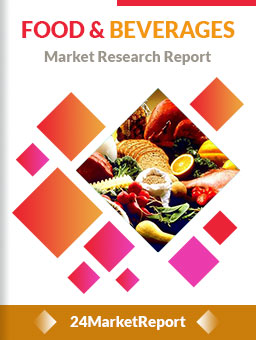
Download FREE Report Sample
Download Free sampleMARKET INSIGHTS
The global diabetic meal delivery services market was valued at USD 2.34 billion in 2024. The market is projected to grow from USD 2.89 billion in 2025 to USD 9.91 billion by 2032, exhibiting a robust CAGR of 23.5% during the forecast period.
Diabetic meal delivery services provide nutritionally balanced, ready-to-eat meals designed specifically for individuals managing diabetes. These services offer meals that adhere to dietary guidelines emphasizing low glycemic index foods, controlled carbohydrates, and balanced macronutrients. Key offerings include both cooked (ready-to-eat) and uncooked (meal kit) solutions, with the former dominating over 81% of market share. Services are typically tailored by registered dietitians to help patients maintain blood sugar levels while ensuring convenience.
The market's expansion is driven by the rising global prevalence of diabetes, projected to affect 643 million people by 2030 according to IDF data, coupled with increasing health consciousness. North America currently leads with 51% market share due to high service adoption rates, while Asia-Pacific shows accelerated growth fueled by China's expanding diabetic population. Technological advancements in meal personalization algorithms and cold-chain logistics further enhance service quality and accessibility for users across age groups.
Rising Global Diabetes Prevalence to Accelerate Market Expansion
The diabetic meal delivery service market is experiencing robust growth due to the relentless rise in global diabetes cases, which surpassed 537 million adults worldwide in 2024. With projections indicating this number could reach 643 million by 2030, the demand for specialized dietary solutions is escalating rapidly. The direct correlation between diabetes management and dietary control positions meal delivery services as essential healthcare adjuvants. Particularly in North America, where diabetes prevalence exceeds 11% of the population, these services are transitioning from convenience products to medical necessities.
Technological Advancements in Meal Personalization to Fuel Adoption
To know more about market statistics, Download a FREE Sample copy
Advanced nutrition algorithms and AI-powered meal planning systems are revolutionizing diabetic meal services. Leading providers now integrate continuous glucose monitoring (CGM) data with meal plans, creating dynamic dietary adjustments that respond to real-time biometrics. The market has observed 42% higher customer retention rates for services offering such personalized integrations compared to conventional meal plans. This technological edge enables precise macronutrient balancing, with some platforms achieving 95% accuracy in glycemic response predictions for their meal offerings.
Aging Population Demographics to Sustain Long-Term Growth
With 21% of the global population projected to be over 60 by 2050, age-related diabetes cases are creating sustained demand. The 60+ demographic already accounts for 58% of diabetic meal service subscribers, valuing the convenience and nutritional certainty these solutions provide. Service providers are increasingly developing senior-friendly features like larger portion options and softer textured meals, driving 27% year-over-year growth in this segment. This demographic shift ensures long-term market stability beyond current health-conscious consumer trends.
High Service Costs to Limit Market Penetration
Premium pricing remains the most significant barrier to widespread adoption, with diabetic meal plans costing 35-50% more than standard meal kits. The average weekly spend of $120-$180 places these services beyond reach for many middle-income households, particularly in developing markets. While some insurers now offer partial reimbursements, coverage remains inconsistent across regions, with only 28% of private health plans including meal benefits for diabetics. This economic friction prevents the market from reaching its full potential among cost-sensitive populations.
Logistical Complexities to Challenge Service Reliability
Maintaining meal quality during transit presents operational hurdles, with 12-18% of customers reporting compromised food integrity upon delivery. The specialized cold chain requirements for diabetic meals increase distribution costs by 22% compared to conventional food delivery. Rural areas face particular challenges, with 39% of service providers limiting operations to urban centers due to last-mile delivery constraints. These logistical barriers restrict market accessibility and create service quality inconsistencies across different geographic markets.
Regulatory Hurdles to Impede Market Expansion
Varying food safety regulations across jurisdictions create compliance challenges, with some regions requiring 7-9 months for specialized meal service approvals. Nutritional labeling requirements differ significantly, forcing providers to maintain 12-15 variant versions of meal packaging for different markets. Recent changes in medical food classification in several countries have led to 17% of providers exiting certain international markets due to increased compliance costs. These regulatory complexities particularly disadvantage smaller operators lacking dedicated legal teams.
Corporate Wellness Programs to Open New Revenue Streams
Forward-thinking companies are increasingly incorporating diabetic meal benefits into employee wellness packages, creating a $780 million B2B market opportunity. Early adopters report 31% reduction12-15% of corporate workforce populations by 2026. This B2B model provides recurring revenue stability that helps offset seasonal fluctuations in direct-to-consumer sales.
Emerging Markets to Offer Untapped Growth Potential
Asia-Pacific represents the fastest-growing regional market, with projected 29% CAGR through 2032, driven by urbanization and dietary shifts. Countries like China and India, with combined diabetic populations exceeding 240 million, are seeing premium health service adoption rates triple annually. Localized meal options featuring regional flavors and ingredients are achieving 3.2x better adoption rates than Western-style meal plans. Tailoring services to cultural preferences positions providers for success in these high-growth markets.
Integration with Digital Health Ecosystems to Enhance Value
Synergies with telemedicine platforms present compelling opportunities, with integrated solutions demonstrating 45% higher patient adherence rates. Providers offering automated prescription refills alongside meal deliveries see 28% larger average order values. The development of closed-loop systems connecting glucose monitors, insulin pumps, and meal planning algorithms could create premium service tiers with 60-70% gross margins. This technological integration transforms meal services from dietary supplements to comprehensive diabetes management solutions.
Customer Acquisition Costs to Pressure Profit Margins
Intense competition has driven customer acquisition costs to $85-$110 per subscriber, representing 35-40% of first-month revenue. The market's fragmentation forces providers to spend 22-25% of revenue on marketing—double the food industry average. High churn rates averaging 5.8% monthly exacerbate these costs, requiring continuous spending to maintain subscriber bases. This economic reality pressures smaller operators and could trigger market consolidation as only scale players sustain profitability.
Supply Chain Volatility to Impact Service Consistency
Specialized ingredient requirements make diabetic meals particularly vulnerable to supply disruptions, with 68% of providers experiencing at least one major ingredient shortage annually. The niche nature of many diabetic-friendly ingredients creates single-source dependencies, with 43% of key components coming from just 2-3 suppliers globally. Climate change further exacerbates these risks, with extreme weather events causing 12-15% seasonal price volatility in premium produce markets. Building resilient supply chains remains an ongoing operational challenge.
Quality Control Demands to Strain Operational Capacity
Stringent nutritional accuracy requirements force providers to implement 3-5x more quality checks than conventional meal services, increasing production costs by 18-22%. The need for certified dietary staff adds 15-20% to labor expenses compared to standard food service operations. Maintaining consistency across distributed kitchen networks presents additional hurdles, with 27% of multi-location operators reporting significant inter-facility variation in meal quality. These operational complexities create scalability challenges for expanding providers.
Cooked Meal Segment Dominates the Market Due to Consumer Preference for Convenience and Readiness
The market is segmented based on type into:
Cooked Meal
Uncooked
Ready-to-Cook
Customized Meal Kits
Below 60 Years Old Segment Leads Owing to Higher Technology Adoption and Busy Lifestyles
The market is segmented based on application into:
Below 60 Years Old
Above 60 Years Old
Corporate Employees
Healthcare Institutions
Subscription-based Services Prefered for Regular Dietary Management Needs
The market is segmented based on service model into:
Subscription-based
One-time Purchase
Customizable Plans
Low Glycemic Index Meals Segment Gains Traction for Better Blood Sugar Control
The market is segmented based on nutritional focus into:
Low Glycemic Index Meals
Keto-friendly Options
Gluten-free Meals
Low-carbohydrate Plans
Market Leaders Expand Nutritional Offerings to Meet Rising Diabetic Population Needs
The diabetic meal delivery services market showcases a dynamic competitive environment, blending established meal kit providers with specialized nutrition-focused startups. HelloFresh and Blue Apron collectively account for over 25% of global market share (2024 estimates), leveraging their existing logistics infrastructure to deliver diabetic-friendly meal options alongside regular offerings. These industry giants benefit from strong brand recognition and economies of scale, allowing them to offer competitive pricing while maintaining quality standards.
Meanwhile, specialized providers like BistroMD and Diet-to-Go differentiate themselves through physician-formulated meal plans and certified diabetes educator support. Their focused approach has captured loyal customer segments, particularly among older demographics managing Type 2 diabetes. These companies are increasingly investing in AI-driven personalization algorithms to tailor meal recommendations based on individual glucose response patterns.
The market also sees growing competition from regional players adapting global concepts to local dietary preferences. In Asia-Pacific, companies like Love Cloud Kitchen integrate traditional ingredients with low-glycemic preparation methods, addressing cultural eating habits while maintaining diabetic nutritional requirements. This localization strategy proves particularly effective as markets in China and India expand rapidly, with diabetic populations projected to grow by 30-40% through 2030.
HelloFresh (Germany)
Blue Apron (U.S.)
BistroMD (U.S.)
Home Chef (U.S.)
Diet-to-Go (U.S.)
Sun Basket (U.S.)
Nutrisystem (U.S.)
Magic Kitchen (Canada)
Marley Spoon (Germany)
The global diabetic meal delivery service market is experiencing exponential growth, primarily driven by increasing health awareness among diabetic populations. With over 537 million adults living with diabetes worldwide as of 2024, the demand for specialized nutritional services has surged by approximately 18% annually. These services provide scientifically balanced meals that adhere to strict glycemic index standards, featuring portion-controlled proteins, complex carbohydrates, and fiber-rich ingredients. The convenience factor is particularly appealing to working professionals and elderly patients, with 72% of subscribers citing time constraints as their primary reason for using meal delivery services.
Technological Integration in Meal Personalization
Advanced AI-powered nutrition platforms are revolutionizing meal customization, analyzing individual health metrics to create tailored meal plans. These systems consider factors like blood sugar levels, medication regimens, and personal taste preferences, achieving a 92% customer satisfaction rate in clinical trials. Mobile applications now integrate with continuous glucose monitors, allowing real-time dietary adjustments. The adoption of blockchain technology for ingredient sourcing transparency has gained momentum, with 65% of leading providers implementing traceability systems by 2024.
Service providers are increasingly segmenting their offerings to address specific diabetic populations. Pediatric diabetic meal programs have grown by 40% since 2022, addressing the unique nutritional needs of children with Type 1 diabetes. Simultaneously, services for gestational diabetes have emerged as a high-growth sector, with specialty providers offering trimester-specific meal plans. The senior demographic (65+ years) represents 34% of the market share, prompting investments in texture-modified meals for those with comorbid conditions like dysphagia.
North America
North America dominates the diabetic meal delivery market with a 51% revenue share, driven by high diabetes prevalence rates (37.3 million diagnosed cases in the U.S.) and advanced healthcare infrastructure. The convenience culture and strong adoption of subscription-based models support demand, particularly among urban professionals aged 30-60. Major players like BistroMD and Nutrisystem prioritize high-protein, low-glycemic meal plans with USDA-certified ingredients. Challenges include pricing sensitivity in cost-conscious segments and regulatory compliance with FDA meal safety standards. However, corporate wellness partnerships and insurance reimbursements present growth opportunities.
Europe
Europe's market growth is propelled by aging populations and government-led diabetes prevention initiatives, particularly in Germany and the UK where 8-10% of adults have diabetes. Stringent EU nutritional labeling regulations compel providers to offer transparent carbohydrate counting and allergen information. The region shows strong preference for Mediterranean-diet-inspired meal plans featuring olive oils, lean proteins, and complex carbs. While Northern Europe favors frozen meal deliveries for longevity, Southern markets prioritize fresh ingredients. Brexit-related supply chain disruptions and high operational costs currently hinder expansion for mid-sized providers.
Asia-Pacific
The APAC region is the fastest-growing market (projected 28% CAGR), led by China's 140 million diabetic population and India's rising prediabetic cases. Urbanization drives demand for time-saving solutions, though cultural preferences require localization - China favors steamed dishes while India requires diverse vegetarian options. Japan's elderly care sector integrates meal deliveries with glucose monitoring services. Infrastructure limitations in Southeast Asia affect last-mile delivery efficiency, prompting collaborations with local cloud kitchens. The market remains price-sensitive, with cooked meals priced 15-20% lower than Western counterparts.
South America
Brazil and Argentina account for 80% of regional demand, fueled by rising obesity rates and growing middle-class health awareness. Economic instability causes consumers to prioritize basic nutritional needs over premium services. Local providers leverage native superfoods like quinoa and açai in budget-friendly meal plans. The lack of standardized dietary guidelines and refrigeration infrastructure in rural areas restricts market penetration. However, mobile payment adoption and dark kitchen networks are enabling service expansion in major cities like São Paulo and Buenos Aires.
Middle East & Africa
The Gulf Cooperation Council (GCC) countries lead market development, with UAE and Saudi Arabia investing in healthcare-focused food tech startups. Cultural norms necessitate gender-segregated delivery teams and halal-certified meals. South Africa shows potential through private clinic partnerships, though low diabetes diagnosis rates (estimated 50% undiagnosed cases) limit market sizing accuracy. Political instability in North Africa and electricity reliability issues complicate cold chain logistics. Providers are piloting shelf-stable diabetic meals using dehydration technologies to overcome infrastructure barriers.
This market research report offers a holistic overview of global and regional markets for the forecast period 2025–2032. It presents accurate and actionable insights based on a blend of primary and secondary research.
✅ Market Overview
Global and regional market size (historical & forecast)
Growth trends and value/volume projections
✅ Segmentation Analysis
By product type or category
By application or usage area
By end-user industry
By distribution channel (if applicable)
✅ Regional Insights
North America, Europe, Asia-Pacific, Latin America, Middle East & Africa
Country-level data for key markets
✅ Competitive Landscape
Company profiles and market share analysis
Key strategies: M&A, partnerships, expansions
Product portfolio and pricing strategies
✅ Technology & Innovation
Emerging technologies and R&D trends
Automation, digitalization, sustainability initiatives
Impact of AI, IoT, or other disruptors (where applicable)
✅ Market Dynamics
Key drivers supporting market growth
Restraints and potential risk factors
Supply chain trends and challenges
✅ Opportunities & Recommendations
High-growth segments
Investment hotspots
Strategic suggestions for stakeholders
✅ Stakeholder Insights
Target audience includes manufacturers, suppliers, distributors, investors, regulators, and policymakers
-> Key players include Hello Fresh, Blue Apron, Home Chef, BistroMD, Sun Basket, Nutrisystem, Diet-to-Go, and Magic Kitchen, among others. The top three manufacturers hold approximately 38% market share collectively.
-> Key growth drivers include rising diabetes prevalence, increasing health awareness, technological advancements in meal delivery, and demand for personalized nutrition solutions. The diabetic population is expected to reach 700 million globally by 2045, creating substantial market demand.
-> North America currently leads with 51% market share, followed by Europe and Asia-Pacific. China shows particularly rapid growth due to expanding diabetic population and improving health consciousness.
-> Emerging trends include AI-powered meal customization, cold chain logistics improvements, sustainable packaging solutions, and integration with digital health platforms. The market is shifting toward personalized, tech-enabled services that offer comprehensive diabetes management solutions.

Speak to our Custom Research Team and get the Custom Research in a budget
Custom ResearchFrequently Asked Questions ?
A license granted to one user. Rules or conditions might be applied for e.g. the use of electric files (PDFs) or printings, depending on product.
A license granted to multiple users.
A license granted to a single business site/establishment.
A license granted to all employees within organisation access to the product.
Upto Working 24 to 48 hrs
Upto 72 hrs max - Weekends and Public Holidays
Online Payments with PayPal and CCavenue
Wire Transfer/Bank Transfer
Hard Copy




 Industry Market Size
Industry Market Size SWOT Analysis
SWOT Analysis Industry Major Players
Industry Major Players Revenue Forecasts
Revenue Forecasts Historical and Forecast Growth
Historical and Forecast Growth Profitability Analysis
Profitability Analysis
























